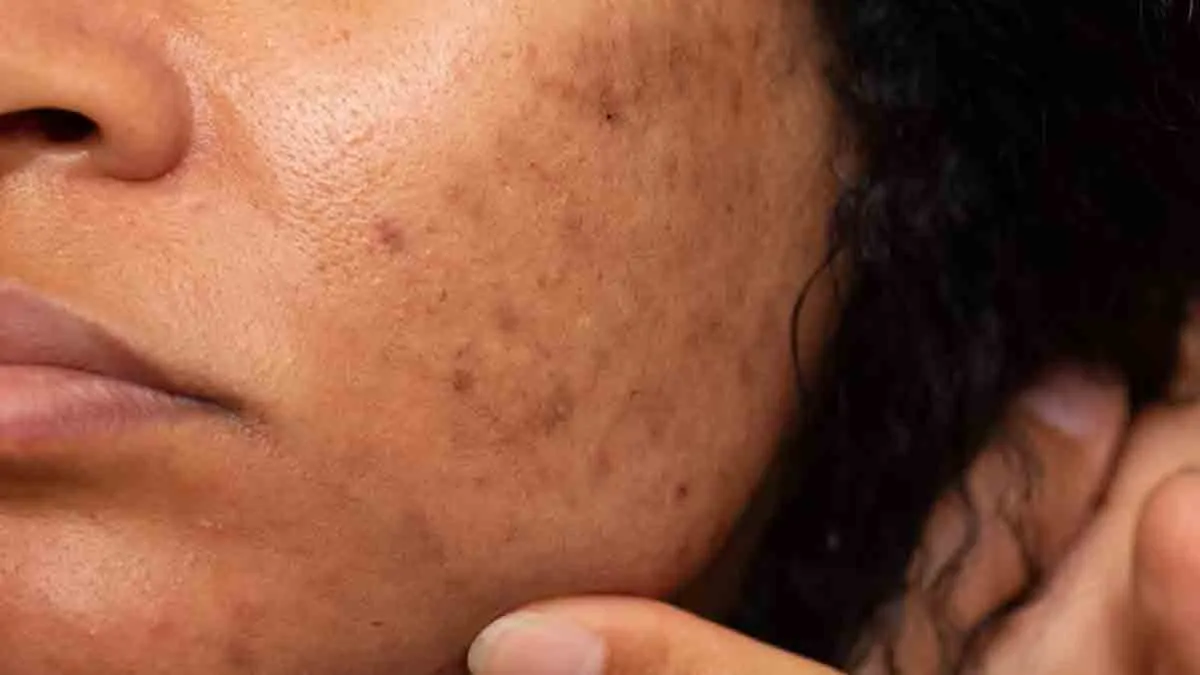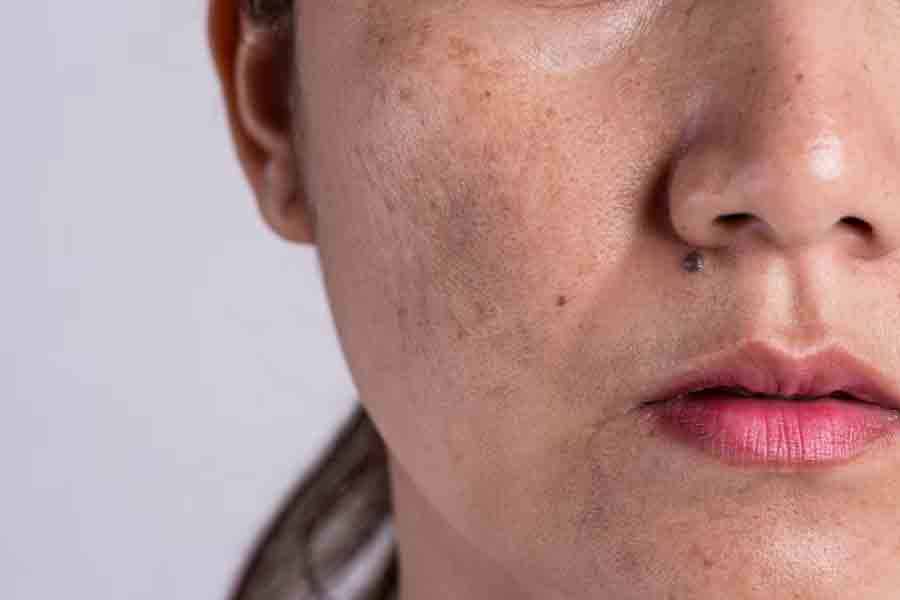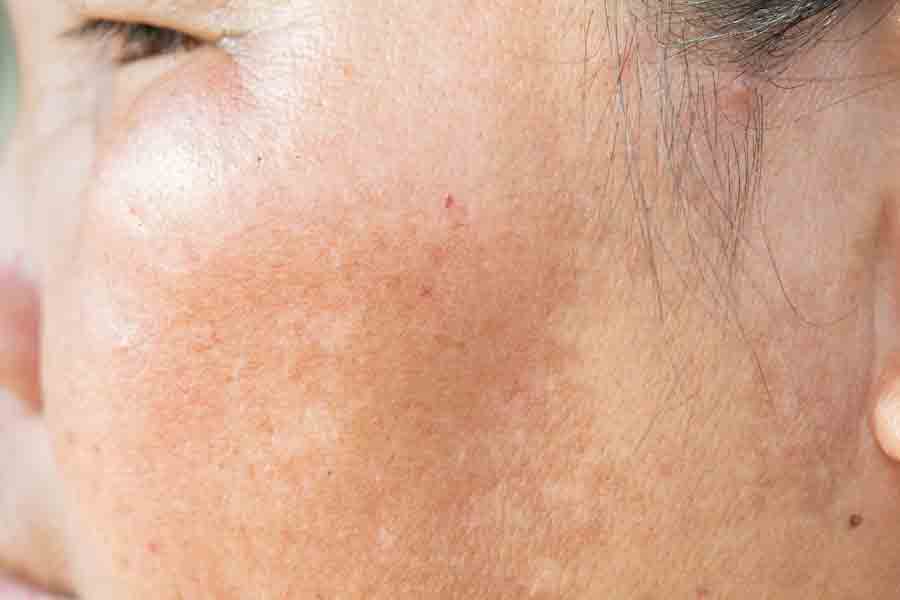
If you've recently noticed brown or greyish-brown patches on your face, particularly on the cheeks and nose, it could indicate melasma, a skin condition triggered by various factors. Also, frequently referred to as the ‘mask of pregnancy', melasma is a harmless condition that mostly affects women. While hormonal changes and certain medications can trigger the condition, sun exposure is also said to be a contributing factor. To understand the link, the OnlyMyHealth team interacted with Dr Shireen Furtado, Senior Consultant – Medical and Cosmetic Dermatology, Aster CMI Hospital, Bengaluru.
Table of Content:-
Also Read: Here’s How Sunbathing For 10 Minutes A Day Can Boost Your Immunity
Is Sun Exposure A Contributing Factor For Melasma?

“Sun exposure is one of the biggest triggers for melasma on the cheeks,” said Dr Furtado, adding that ultraviolet (UV) rays stimulate melanocytes, the pigment-producing cells in your skin, leading to excess melanin production and dark patches. Even a few minutes of unprotected sun exposure can worsen melasma, making it more stubborn over time.
A study published in The Journal for Nurse Practitioners suggests that sun exposure is the greatest triggering and exacerbating factor in melasma.
According to the doctor, sunscreen with SPF 50+, along with hats and protective clothing, is essential to prevent flare-ups. The doctor adds that even indoor light and heat can contribute to melasma, which is why consistent sun protection is key.
If it's already developed, treatments like medical-grade creams, chemical peels, or laser therapy can help lighten the pigmentation effectively.
Other Factors That Can Trigger Melasma

Melasma can be triggered by several factors besides sun exposure, such as:.
Hormonal changes during pregnancy, in women taking birth control pills, and those undergoing hormone therapy can stimulate excess melanin production. Stress and thyroid disorders may also contribute by affecting hormone levels.
Additionally, certain skincare products or treatments that irritate the skin can worsen melasma. Even heat, whether from hot weather or cooking over a stove, can trigger pigmentation.
Moreover, genetics also play a role; if your family has a history of melasma, you're more likely to develop it.
Skincare Products That Can Help Reduce Melasma
To prevent and manage melasma, use a broad-spectrum sunscreen (SPF 50+) daily, even indoors, said Dr Furtado.
She advised looking for ingredients like zinc oxide or titanium dioxide for maximum protection. A gentle cleanser and fragrance-free moisturiser help maintain skin barrier health.
For pigmentation control, the doctor recommended using products with niacinamide, vitamin C, kojic acid, or azelaic acid. Prescription creams with hydroquinone or tretinoin may be recommended for stubborn melasma.
It is crucial to avoid harsh exfoliants or strong acids that can irritate the skin. Always layer sunscreen over your skincare and reapply every 2-3 hours.
Also Read: How Much Sun Exposure Is Needed to Prevent Vitamin D Deficiency?
How To Prevent Melasma Without Avoiding The Sun Completely

While sun exposure can lead to melasma development, you don’t have to avoid the sun, said Dr Furtado.
However, you do need to protect your skin diligently. This can involve:
- Use a broad-spectrum sunscreen (SPF 50+) every morning and reapply every 2-3 hours, even on cloudy days.
- Choose sunscreens with zinc oxide or titanium dioxide for better protection.
- Wear wide-brimmed hats, sunglasses, and protective clothing when outdoors.
- Seek shade whenever possible, especially between 10 am and 4 pm.
- Use antioxidant-rich skincare, like vitamin C, to neutralise sun damage.
- Avoid heat exposure, including hot showers and cooking over high flames, as heat can worsen melasma.
Conclusion
Melasma is a skin condition that is common in women, particularly during pregnancy. While hormonal changes are a leading cause of melasma, sun exposure can also be blamed, among other things.
Our expert advises taking all the necessary precautions to protect your skin from the sun's harmful UV rays. Not only does this reduce the risk of melasma, but it also minimises the risk of skin cancer.
Also watch this video
Read Next
Do You Feel Skin Dryness Even After Applying Lotion? Here’s How To Choose The Perfect Body Lotion
How we keep this article up to date:
We work with experts and keep a close eye on the latest in health and wellness. Whenever there is a new research or helpful information, we update our articles with accurate and useful advice.
Current Version